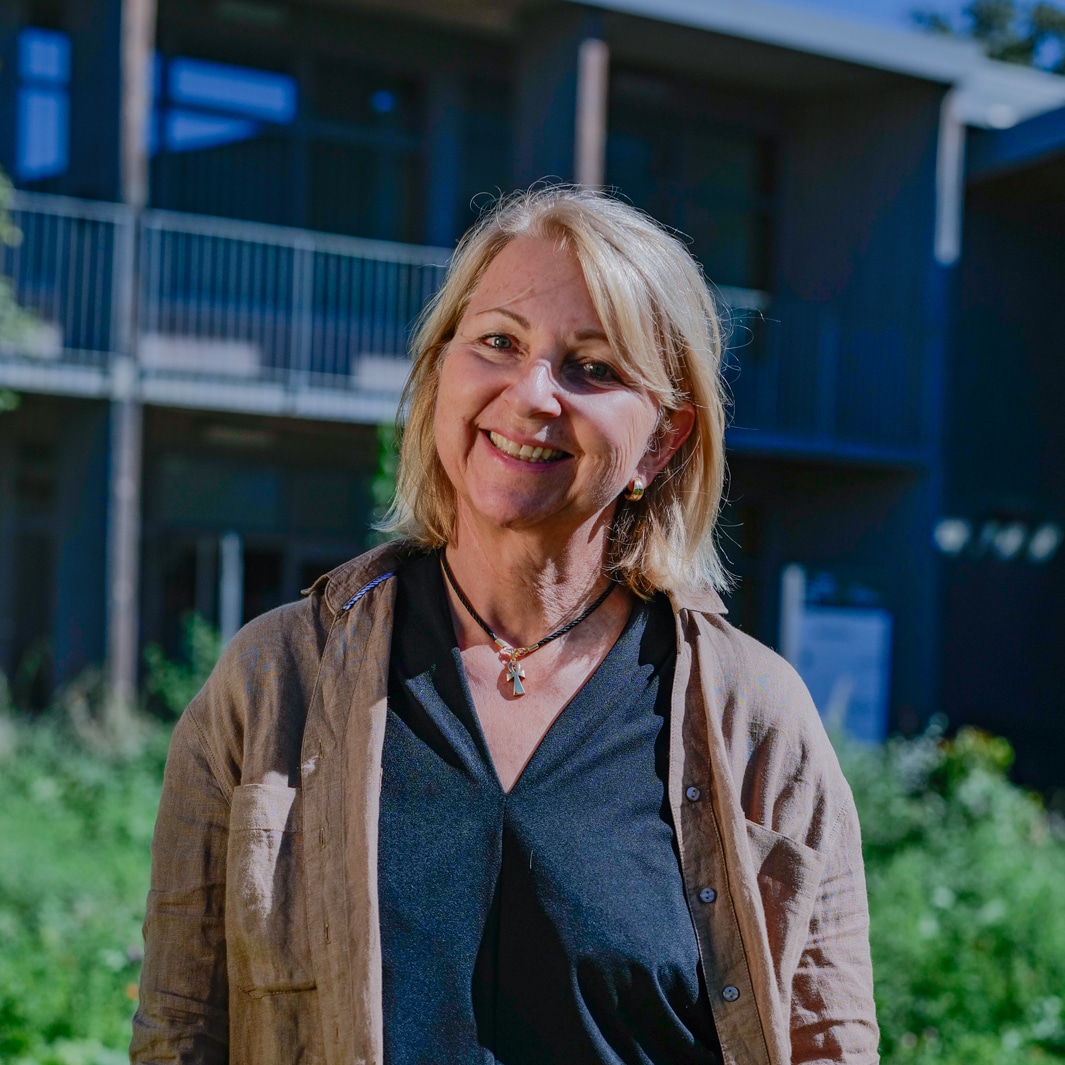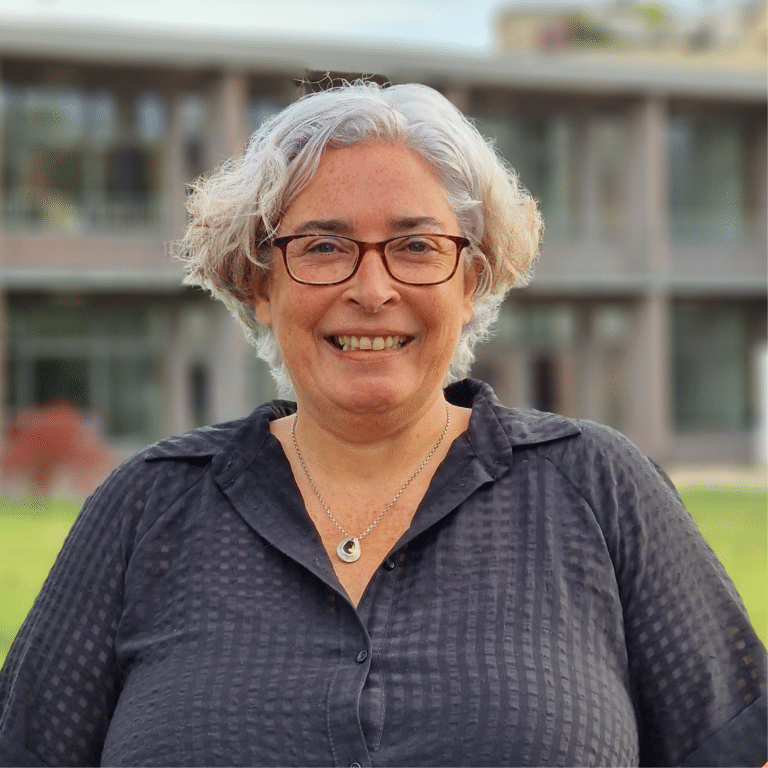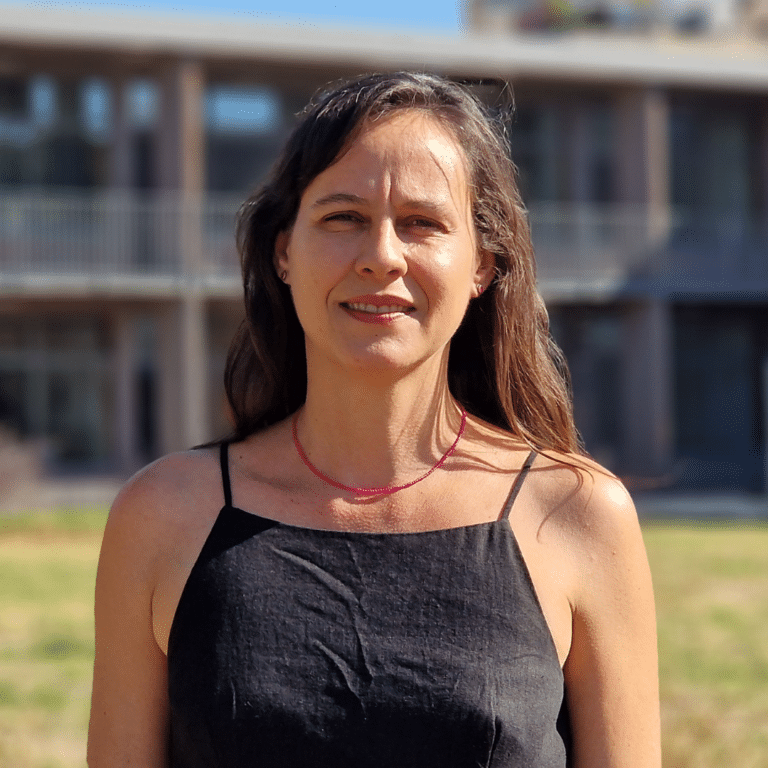
Anne Demeester
Research project
TrEMa – Transformation of Midwifery Curriculum
Project summary
Context
Since the start of the 2024-2025 academic year, midwifery training institutions have been tasked with implementing a new study program based on a recent national framework. This framework is structured into six areas of competency, a fundamental core, a personalized student pathway, and the defence of a professional thesis. This reform introduces significant changes compared to the previous one, which conferred a Master’s degree: extending the duration of studies with the addition of a short third cycle, a competency-based structuring framework, and awarding the title of Doctor in Midwifery. The National Association of Midwifery Students requested this extension to reduce the workload during initial training, linked to the increased pace necessary due to the expansion of competencies granted to midwives in recent years, such as preventive gynaecological care and contraception, voluntary termination of pregnancy through medication, vaccination of the entourage, screening and treatment of sexually transmitted infections.
Research Objectives and Questions
The purpose of the TrEMa project is to document through research the process of curricular transformation within the framework of the redesign of the midwifery studies program. We choose to refer to midwives in the feminine, whether they are clinicians, students, or teachers, because as of January 1st, 2023, according to the Directorate of Research, Studies, Evaluation, and Statistics, 97.2% of the 24,354 midwives in France are women. The project is based on the following questions: How have the teaching teams appropriated the new training framework? What are the perceptions of teaching, student, and clinical midwives regarding the reform? How have teaching midwives implemented it? What barriers and levers have been identified? Have midwifery teachers perceived the need for professional development? What transformative changes have been made to the training system? What improvement avenues are proposed? A new training framework has been developed, but without an evaluation framework for now. Thus, we wonder how the targeted competencies are evaluated. Naturally, this research program will evolve in seven years (first graduates in 2029) towards a second wave of work focusing on measuring the impact of the new study program in terms of alignment between training and professional practice, the role of midwives in the healthcare system, interprofessional collaboration, and the identity evolution of midwives and midwifery teachers.
Interdisciplinary Approach
This research project is interdisciplinary, crossing the fields of Health and Human and Social Sciences, primarily in education and training. According to Chantry and Demeester (2022), research in education also concerns the field of midwifery, but it remains underdeveloped to this day, making this project all the more relevant. It will interest the community of midwifery teachers and professionals, and more broadly that of teachers, trainers, and medical and paramedical professionals. The project aligns with the policy of pedagogical transformation of higher education programs, which have been encouraged for several years to adopt a program approach (PA) and a competency-based approach (CBA). Although several degree programs have national frameworks, this does not guarantee a comprehensive transformation of the curriculum, often limited to matching course units with targeted competencies (Daele and Berthiaume, 2014), nor an evaluation of competencies (Demeester, 2020). Reports from HCERES experts reveal that the majority of programs display a competency framework without ensuring the pedagogical alignment recommended by Biggs (1996), and that institutions struggle to engage teams. Producing new knowledge on the pedagogical transformation of a level 7 study program presents a significant interest for the academic community. Beyond a utilitarian dimension, this research aims to develop the discipline and establish its scientific character.
We propose to form a consortium of education researchers to develop interdisciplinary research on the curricular transformation of midwifery studies. The project is co-led by the Laboratory of Learning, Didactics, Evaluation, and Training, ADEF (UR 4671) of Aix Marseille Université (amU) and the Interdisciplinary Center for Research in Education and Training of Normandy, CIRNEF (UR 7454) of Normandy University. These laboratories develop complementary expertise directly related to our project. Our work will benefit from the cross-perspectives of experts, a wide network of researchers, and potential interdisciplinary collaborations (Mercier-Brunel, 2019, 2022; Poplimont, 2000, 2011; Wittorski, 2016, 2022).
Biography
Anne Demeester began her medical career in 1984 as a midwife. She holds a doctorate in medical sciences and a PhD in education. After 11 years of clinical practice, she became an educator and later the first dean of an autonomous university department in midwifery. Since 2017, she has been an Associate Professor in Education Sciences at the INSPÉ of Aix Marseille Université, affiliated with the ADEF research unit (Learning, Didactics, Assessment, Training). Her research focuses on competency development in health (including clinical reasoning), education (competency-based approaches), and more recently in health education (psychosocial skills). Actively involved in higher education reform, she has supported several institutions, including Aix Marseille Université. As President of SIFEM, she also contributes to the journal Pédagogie Médicale. Her career, at the crossroads of education and health, fosters an interdisciplinary approach to training health and education professionals.



